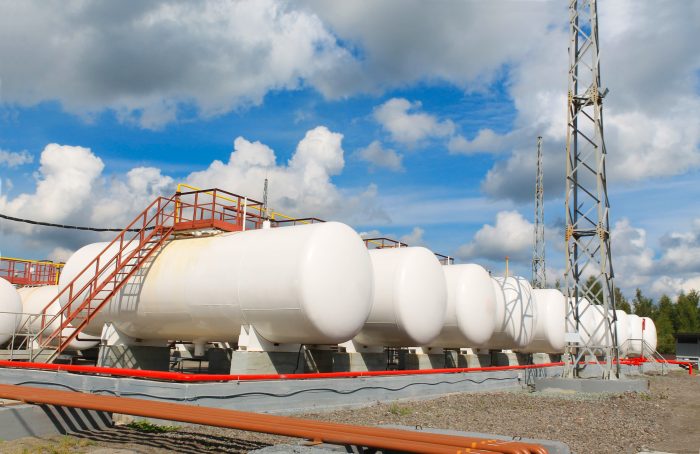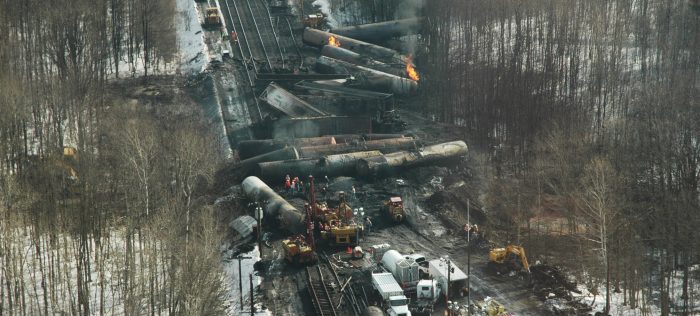
EnviroScience is excited to offer a variety of environmental compliance training programs. We can bring these programs to your facility in-house, with EnviroScience experts providing the training, or we can provide customized programs that your company personnel can administer.
In either case, your company will benefit from our expertise and quality training programs to ease compliance with environmental regulations. View a comprehensive matrix of all requirements of the below-listed training programs here.
For more information on our various programs, contact us by filling out the contact form below.
SPILL PREVENTION CONTROL AND COUNTERMEASURE (SPCC) PLAN
AND USED OIL TRAINING
Who: Employees who handle or have responsibilities for managing and/or handling oil.

What: (Initial) The operation and maintenance of equipment to prevent discharges; discharge procedure protocols; applicable pollution control laws, rules, and regulations; general facility operations; and the contents of the facility SPCC Plan. (Annual) Refresher course detailing the SPCC plan, actions to be taken in response to spill events, emergency protocols, and recently implemented practices and procedures.
When: Training should occur at the time of the employee’s initial assignment. Annual discharge prevention briefings must describe known discharges, failures, and/or malfunctioning components that occurred in the prior year.
FACILITY RESPONSE PLAN (FRP)
Who: Any personnel involved in oil spill response activities. Training should be functional in nature according to the job tasks for both supervisory and non-supervisory operational personnel.
What: Training on the content of the FRP and procedures to respond to the discharges of oil. Training drills and exercises are required with the evaluation procedures.
When: Determined by the approved FRP.
PIPELINE AND HAZARDOUS MATERIALS SAFETY ADMINISTRATION (PHMSA)

Comprehensive Oil Spill Response Plan (COSRP)
Who: All employees to know and understand their responsibilities.
What: Content of the COSRP and corresponding roles and responsibilities under the Plan.
When: Training should occur within 90 days of a new hire or change in job function or revision to the plan. Refresher training should occur every five (5) years.
Emergency Planning and Preparedness
Who: Any person within the organization having responsibilities to manage the company’s risks and potential environmental liabilities related to unplanned events.
What: Customizable training catered to your organization’s operations and those associated potential risks and exposures to develop risk reduction strategies, mitigation, and contingency planning.
When: All managers and new hires who have oversight, management, and responsibilities associated with determining the organization’s risks and liabilities. Recurring training is recommended to include changes within the organization, expansion of the company, or the addition of new business units and/or products.
Emergency Planning and Community Right to Know (ECPRA)
Who: Any person who has the responsibility to gather chemical inventory information to evaluate the reporting thresholds for those hazardous chemicals or extremely hazardous substances used, stored, or produced at the facility for purposes of providing annual inventory reporting (EPCRA 312 Report) to state and local officials.
Who: Any person who has the responsibility to provide verbal and/or written notification of a spill or release of hazardous substances or extremely hazardous substances above the reportable quantity to local and state officials (EPCRA 304).
Who: Any person who has the responsibility to gather chemical information that manufacture, import, process, or use certain types of toxic chemicals for purposes of providing public disclosure of the locations of such facilities to USEPA and state agencies through annual submission of the Toxic Release Inventory (TRI) (ECPRA 313).
What: General awareness of the federal and state annual chemical inventory reporting requirements, release reporting thresholds, notification requirements, and emergency response actions. Review facility-specific systems for identification and tracking chemical inventories, notification policies, and procedures for both internal and external contact and facility-authorized/trained emergency response actions.
When: Recommended initial training. Recurrent training for any changes in personnel, internal policies and procedures, emergency response actions, and/or regulations.
CLEAN WATER ACT TRAINING
- National Pollutant Discharge Elimination System (NPDES)
- Stormwater Pollution Prevention Plan (SWPPP)
- CWA/ SARA 313 Water Priority Chemicals
Who: All employees who work in areas where industrial activities or material handling activities are exposed to stormwater or who are responsible for implementing activities necessary to meet the conditions of this permit (inspectors, maintenance personnel, and all members of the Pollution Prevention Team).
What: A thorough understanding of potential sources of contaminants, the contents of the SWPPP, site-specific best management practices, processes, and materials they are working with, safety hazards, practices for preventing discharges, and response procedures for toxic and hazardous material incidents.
When: Training at the time of the employee’s initial assignment and annual refresher training.
Contact Us
For more information about EnviroScience’s Environmental Compliance Training programs, contact us below.
Few environmental firms in the country retain EnviroScience’s degree of scientific know-how, talent, and capability under one roof. The diverse backgrounds of our biologists, environmental engineers, scientists, and divers enable us to provide comprehensive in-house services and an integrated approach to solving environmental challenges—saving clients time, reducing costs, and ensuring high-quality results.
Our client guarantee is to provide “Excellence in Any Environment,” meaning no matter what we do, we will deliver on our Core Values of respect, client advocacy, quality work, accountability, teamwork, and safety. EnviroScience was created with the concept that we could solve complex problems by empowering great people. This concept still holds true today as our scientists explore the latest environmental legislation and regulations and incorporate the most up-to-date technology to gather and report data.
EnviroScience expertise includes but is not limited to: aquatic surveys (including macroinvertebrate surveys and biological assessments); ecological restoration; ecological services (including impact assessments, invasive species control, and water quality monitoring); emergency response; engineering and compliance services; endangered mussel surveys; laboratory and analysis; stormwater management; threatened and endangered species; and wetlands and streams (including delineation and mitigation). Further, EnviroScience is one of the few biological firms in the country that is a general member of the Association of Diving Contractors International (ADCI) and offers full-service commercial diving services.



